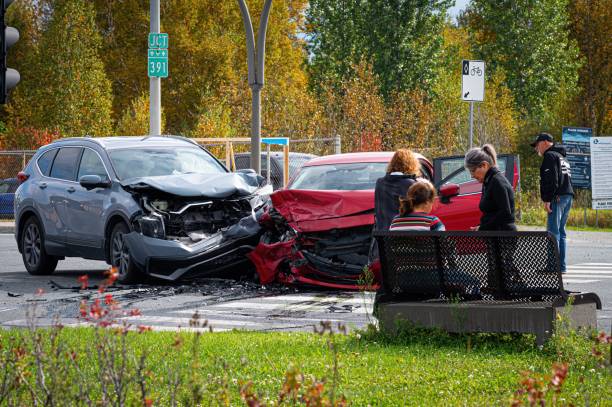In the blink of an eye, a car accident can change your life. Beyond the immediate shock and adrenaline rush, the aftermath often includes dealing with injuries. Auto accidents can lead to a range of injuries, from minor bruises to more severe trauma. Seeking prompt and effective treatment is crucial for a speedy recovery and minimizing long-term complications. This article delves into the various aspects of auto accident injury treatment, exploring the importance of immediate care, common injuries, and long-term rehabilitation strategies.
Immediate Care: The First Step to Recovery
Importance of Prompt Medical Attention
The moments following an auto accident are critical, and seeking immediate medical attention should be a top priority. Even if you feel fine initially, some injuries may not manifest symptoms until later. Adrenaline and shock can mask pain and other signs of injury, making it essential to consult a healthcare professional promptly.
Injuries such as whiplash, concussions, and internal bleeding may not be apparent immediately but can have serious consequences if left untreated. By seeking prompt medical attention, you increase the likelihood of identifying and addressing potential issues early on, preventing complications down the road.
First Aid Measures at the Scene
While awaiting professional medical assistance, there are some first aid measures you or someone at the scene can take to minimize the impact of injuries. If possible and without exacerbating any injuries, move to a safe location to avoid further harm. Call emergency services immediately and provide them with accurate information about the situation.
Basic first aid, such as applying pressure to stop bleeding or supporting a suspected fracture, can make a significant difference. However, it’s crucial to remember that these measures are temporary, and professional medical evaluation is indispensable for a comprehensive understanding of the injuries sustained.
Common Auto Accident Injuries
Whiplash: The Stealthy Culprit
One of the most common injuries in auto accidents is whiplash, often associated with rear-end collisions. Whiplash occurs when the head is suddenly jerked forward and then backward, causing strain on the neck. Symptoms may include neck pain, headaches, and stiffness.
While whiplash is generally considered a mild injury, its long-term effects can be debilitating if not treated promptly. Physical therapy, pain management, and neck exercises are typical components of whiplash treatment plans.
Concussions: The Hidden Threat
Concussions, a type of traumatic brain injury, can occur when the head experiences a sudden jolt. In auto accidents, this may result from the head hitting the steering wheel, dashboard, or even the side window. Symptoms range from confusion and memory loss to headaches and nausea.
Timely diagnosis and proper rest are crucial for concussion recovery. In severe cases, rehabilitation may be necessary to address cognitive and physical challenges.
Fractures and Broken Bones
The impact of a collision can lead to fractures and broken bones, affecting various parts of the body. From simple fractures to more complex compound fractures, the severity of these injuries varies. Immediate immobilization and professional medical attention are vital for proper healing.
Treatment may involve casting, surgery, or a combination of both, depending on the nature and location of the fracture. Rehabilitation, including physical therapy, is often necessary to restore functionality and strength.
Long-Term Rehabilitation Strategies
Physical Therapy: Restoring Functionality
Physical therapy plays a crucial role in the rehabilitation process after auto accident injuries. Therapists design personalized exercise programs to improve mobility, reduce pain, and enhance overall function. Whether recovering from fractures, soft tissue injuries, or surgeries, consistent and targeted physical therapy can significantly expedite the healing process.
Pain Management: Finding Relief
Chronic pain is a common consequence of auto accident injuries. Effective pain management is essential for improving the quality of life during the recovery phase. This may involve medications, injections, or alternative therapies such as acupuncture. Collaborating with healthcare professionals to find the most suitable pain management approach is integral to long-term recovery.
Psychological Support: Healing the Mind
Auto accidents not only impact the body but also take a toll on mental health. Post-traumatic stress disorder (PTSD) and anxiety are common after traumatic events. Seeking psychological support, such as counseling or therapy, can be instrumental in addressing these issues and promoting overall well-being.
Conclusion
In the aftermath of an auto accident, prioritizing your health is paramount. Immediate care, thorough medical evaluation, and a commitment to long-term rehabilitation are key components of a successful recovery journey. From the stealthy whiplash to the hidden threat of concussions and the challenges posed by fractures, each injury requires a tailored approach to treatment.
Remember, the road to recovery may be arduous, but with the right medical support, rehabilitation strategies, and a positive mindset, you can overcome the aftermath of an auto accident. By understanding the importance of prompt attention, acknowledging common injuries, and embracing long-term rehabilitation, you empower yourself to navigate the recovery process with resilience and determination. Your health is your most valuable asset—guard it with the care and attention it deserves.

